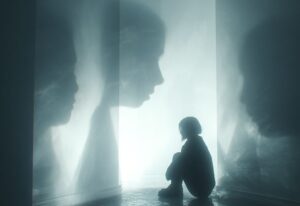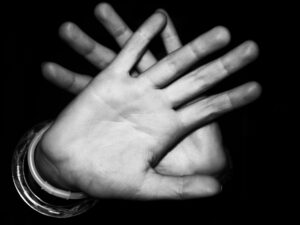Kenyan society has been shaken by a disturbing trend: the surge in sexual abuse cases within boarding high schools, as highlighted in the latest issue of the Daily Nation (Sexual Abuse in School: The Silent epidemic).
The reopening of schools following the COVID-19 pandemic seems to have worsen this concerning phenomenon. As parents, guardians, and educators wrestle with the shock of these revelations, it is imperative to dive deep into the root causes, recognize warning signs, and take proactive steps to protect our children.
What was the Impact of COVID-19 on Sexual Abuse in Schools?
The 2019-2021 Impact of COVID-19 on sexual abuse in Kenyan boarding schools has been significant. With schools closed for extended periods due to lockdown measures, many students were isolated from the protective environment of the school and left vulnerable to exploitation.
Statistics from various organizations showed a concerning rise in reported cases of sexual abuse during the pandemic. According to a report by Childline Kenya, there was a 27% increase in cases of child abuse, including sexual abuse, during the first six months of the pandemic compared to the same period in the previous year.
The closure of schools meant that students were away from the supervision of teachers and other responsible adults, making it easier for perpetrators to target them without fear of detection. Additionally, the shift to online learning meant that some students were spending more time unsupervised on the internet, where they could be exposed to online grooming and exploitation.

There was increased sexual violence against children, particularly girls in Kenya during that period. The country had high rates of victimization pre-COVID-19, with the National Violence Against Children Survey finding that 13.5% of girls and 2.4% of boys experience sexual violence by the age of 17. However, this escalated further with the emergency measures introduced to prevent COVID-19 spread, including a nightly dusk-to-dawn curfew, travel restrictions, and school closures.
Offending during the pandemic, most cases were taking place during the day (76% of all cases) when children would have previously been at school. Additionally, most sexual offenses against children during COVID-19 appeared to be occurring in private locations (71% of all cases), with most of these offenses occurring in the perpetrator’s home (65%), followed by the child’s own residence (29%). This is in stark contrast to pre-COVID-19, when few offenses against children occurred in private (24.5% of all cases), and few attacks occurred at the perpetrator’s home (14.9%) or the child’s residence (5.4%).
Furthermore, the economic impact of the pandemic had exacerbated existing vulnerabilities, with families facing financial strain and some students being forced to drop out of school and seek employment, putting them at greater risk of exploitation.
What is the Impact of COVID-19 in 2024 in our schools especially boarding schools?
In 2024 we are addressing the impact of COVID-19 on sexual abuse in Kenyan boarding schools as it requires a multifaceted approach. We have to be vigilant and come up with an effective multifaceted approach which will include; strengthening child protection systems, providing support services for survivors, raising awareness about the signs of abuse, and ensuring that perpetrators are held accountable for their actions.
In summary, COVID-19 pandemic did worsen the already concerning issue of sexual abuse in Kenyan boarding schools even if the pandemic was 3 years ago, this highlights the need for urgent action to protect vulnerable students and create safer learning environments.
Understanding the Rise in Sexual Abuse Cases in our schools
The rise in sexual abuse cases in Kenyan schools especially boarding schools can be attributed to various factors.
Firstly, the hierarchical setup of these institutions, along with the lack of proper supervision and accountability, provides fertile ground for abuse to occur without detection.
Additionally, victims often fear speaking out due to stigma and potential retaliation, giving perpetrators free rein.
Furthermore, societal attitudes that downplay or overlook sexual violence may empower offenders and discourage victims from seeking assistance.
The Nation Media exposé highlights a noticeable increase in reported cases of sexual abuse in Kenyan boarding schools over the past few years.
These statistics highlight the urgent need for comprehensive measures to address this concerning trend and ensure the safety and well-being of students.
How do you recognize signs of Abuse?
Parents/guardians must be vigilant and attuned to potential indicators of sexual abuse in their children.
Recognizing signs of sexual abuse in children is crucial for parents to ensure their safety and well-being. It’s essential to pay attention to behavioral changes like sudden withdrawal, mood swings, or reluctance to go to school, as these could indicate distress.
Physical symptoms such as unexplained injuries, frequent headaches or stomachaches, and changes in eating or sleeping habits shouldn’t be ignored.
Also, if you notice a significant drop in academic performance or if your child suddenly avoids certain people or activities, it’s important to investigate further.
Being aware of these signs can help parents identify and address any potential abuse their child may be experiencing.
How do you support Children Affected by Sexual Abuse?
In the unfortunate event that a child discloses or exhibits signs of sexual abuse, it is crucial for parents to respond with empathy, patience, and unwavering support.
Believing and validating the child’s experiences is paramount, as is reassuring them that they are not to blame.
Seeking professional help from counselors, therapists, or support groups specializing in trauma recovery can facilitate healing and empower the child to reclaim their sense of agency.
Establishing open lines of communication and fostering a nurturing, non-judgmental environment at home can also aid in the healing process.
What are the protective Measures for Safeguarding Children?
Protecting children from sexual abuse in schools involves several important steps. Firstly, schools need to have strong rules and procedures in place to keep students safe. This includes making sure that all staff members have been checked thoroughly before they are hired, and providing regular training to help staff recognize and respond to signs of abuse.
It is also crucial that schools to create an environment where students feel comfortable speaking up in the event of bullying, and where they know they won’t face punishment for doing so.
Furthermore, teaching students and parents about things like consent, boundaries, and what healthy relationships look like can help them understand what is and isn’t okay and give them the tools they need to protect themselves. By taking these steps, schools can help prevent sexual abuse and create a safer learning environment for everyone.
What next???
The alarming prevalence of sexual abuse in Kenyan boarding schools demands urgent attention and concerted action from all stakeholders.
By understanding the underlying factors contributing to this epidemic, recognizing warning signs, and taking proactive steps to support and protect our children, we can strive towards creating safer, more nurturing environments where every child can thrive without fear of harm.
Let us join hands to break the silence, shatter the stigma, and ensure that no child suffers in silence.
Author: Florence Wangui is an A4C Volunteer and a 2023 graduate (BSc. Animal Health, Production, and Processing) of Jomo Kenyatta University of Agriculture and Technology (JKUAT)







